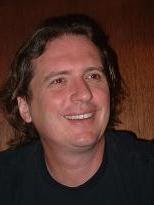Fixed or Growing?
Right now consider some area of your life that you would like to improve in. It can be any type of activity; professional, athletic, scholastic, creative, etc. Got something in mind? Good, we will refer to that activity as X. Now consider which of these statements you agree with most:
A: People who are good at X are born that way; you either have it or you don't.
B: The reason some people excel at X is mostly because of their drive, focus, hard work and persistence.
Which one did you pick? According to psychologist Dr. Carol Dweck in her book Mind Set: The New Psychology of Success, you are going to be much better off if you picked B. In the book Dr. Dweck refers to two basic mindsets, fixed and growth, and how they impact on personal development.
Our culture places a lot value on the ability of standardized tests to predict future success. Do well on the I.Q. or SAT tests and it is assumed you will be the one living on the house on the hill. And if you are not showing athletic promise by the age of 7 or 8, you might as well forget about it.
Indeed we seem to prefer the belief that our shining stars virtually sprung from the womb in a high state of performance. And if at first you don't succeed, you're off the hook since it just wasn't meant to be. Yet it is this so?
Many sports writers and fans agree that Michael Jordan was possibly the best player ever in the game of basketball. If his gifts were entirely genetic, then why was he cut from his varsity team in high school? Apparently some aspects of his game were deficient yet the young Jordan did not give up. Instead he found a sympathetic coach who was willing to work with him for a couple of hours before school each morning in order to bring his skills up to par.
Obviously Jordan had considerable potential for his chosen sport, however it was his passion for basketball, a belief that his skills could be developed and a solid work ethic that made it happen. How often does some much heralded child or teen prodigy become yet another "whatever happened to" so and so?
Dr. Dweck notes the following differences between the fixed and growth mindsets.
Fixed: Your potential is set at birth. If you are good at something it should be effortless. Failure is a signal to either make excuses and cast blame, or just give up. A lot of effort is spent maintaining the façade of being smart, athletic, talented, etc.
Growth: recognizes that while there are limits on anyone's potential, it takes a lot of hard work and persistence to even come close to reaching it. Setbacks are learning experiences and reminders to push harder. Would like to win like everyone else, but can be satisfied with the knowledge that he put forth his best effort at the time even if he doesn't.
Tip for parents/teachers/anyone dealing with the younger set: you can encourage children towards the growth mindset by praising their efforts, instead of traits like "you are so smart." Some research indicates that telling children that they are smart encourages the fixed mindset and increases the likelihood that they will not apply themselves when faced with a challenging task. since they will reason that smart people shouldn't have to work too hard. Instead notice and encourage persistence and effort. Example, "I know you really put a lot of work into that project and it came out great!"
P.S. For more information on Dr. Dweck's book and other titles of interest, please visit my Recommended Reads.


<< Home